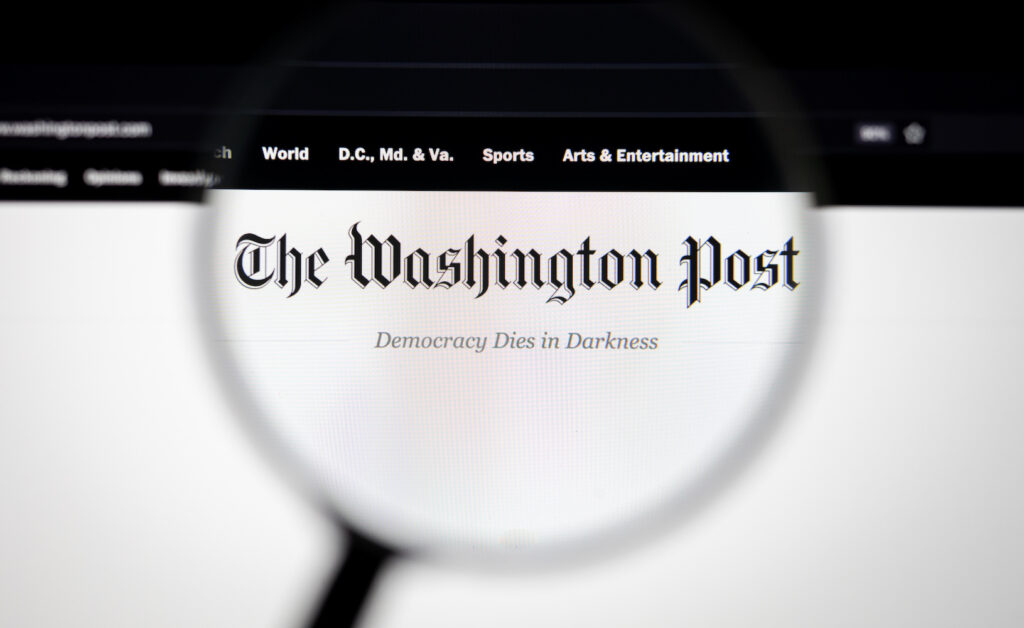Washington Post story on own education poll ignores important takeaways on transgender policies from survey
A Washington Post story reporting on its own survey of voters about education issues in Virginia ignores important takeaways of the survey’s findings, especially on transgender issues.
On the…

A Washington Post story reporting on its own survey of voters about education issues in Virginia ignores important takeaways of the survey’s findings, especially on transgender issues.
On the biggest issues regarding transgender students in schools, voters agree with conservative views by large majorities, a fact that The Post tries to hide.
Instead, the article tries to frame the survey as a referendum on Virginia’s Republican Gov. Glenn Youngkin.
The poll, which covered a variety of issues, including pandemic-related learning loss, found that nearly 4-in-10 voters felt that schools were doing too much to protect transgender students, while only half as many (21%) felt schools weren’t doing enough.
Yet the Post wrote, “Despite support for some of Virginia’s recommended policies, more voters disapprove of Youngkin’s handling of transgender issues than approve, 43 percent to 37 percent.”
But on the biggest issues involving schools and transgender students, there’s near unanimity, according to the survey results:
- 72% oppose allowing students to change their names or pronouns at school without parental consent.
- 63% favor requiring schools to notify parents of gender changes by students.
- 70% of voters oppose “allowing trans girls to compete in sports against other girls.”
Despite the survey findings, the Post included quotes from three parents who opposed restrictive policies on transgender students, including those policies on sports.
The Post failed to include quotes from a single voter or expert who supports restrictions on transgender issues.
The poll generally agrees with other surveys on gender issues in schools.
A Gallup survey released in June found that 69% of Americans believe sports participation should be restricted to the gender assigned at birth.
A Monmouth University Poll released in August found that 77% of New Jersey residents favored parental notification by schools if students want to adopt gender name or pronoun changes.
The Post story also painted a rosy picture about learning loss related to the pandemic in Virginia, trying to depict the controversy as political rather than academic.
In the poll, 58% of respondents said their kids had either not lost any ground during the pandemic, or, by now, had made up all of their lost ground.
Thus the Post ridiculed the idea of learning loss as “a common narrative in the political sphere that public schools are failing.”
“It may be heartening to many public educators who feel that they’ve been under attack by a particularly vocal group on the right to learn that most parents think that the public schools are behaving responsibly and seriously trying to deal with issues of learning loss and making sure that their children get a good education,” Mark J. Rozell, dean of the Schar School of Policy and Government at George Mason University told the Post. “I think it’s a good story to tell about public education.”
It may be a good story to tell, but it flies in the face of the testing results by the Northwest Evaluation Association group (NWEA) and other national testing experts.
“In the 2022-23 school year, students learned at a similar or slower rate compared to a typical pre-pandemic school year, the analysis by the [NWEA] found. This left intact the substantial learning losses, which have barely budged since the spring of 2021,” reported Chalkbeat.
The Post’s poll was conducted with the Schar School of Policy and Government at George Mason University from Oct. 11-16, among a random sample of 1,181 registered voters in Virginia drawn from a statewide voter database, the paper said.



